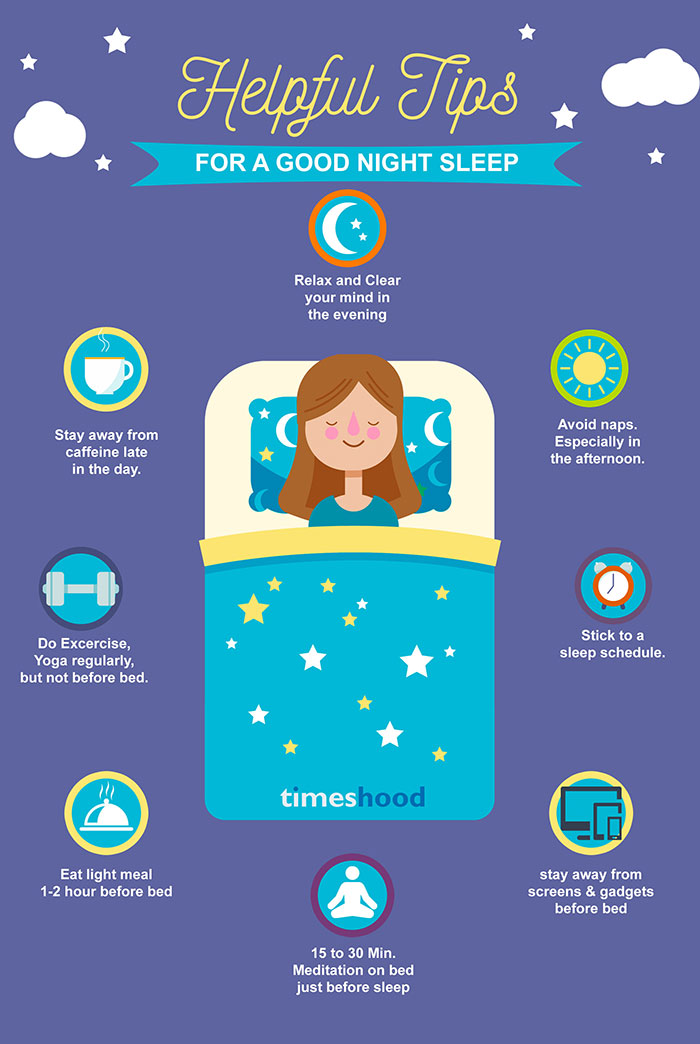This post may contain affiliate links. Please read our disclosure for more info.
A study says 93% of people living in cities dread bedtime and not able to sleep well.
In research by the University of California, it has been found that physical, emotional, and mental disorder is immensely affected by the lack of sleep that makes people feel lonelier and less inclined to engage socially.
“We humans are a social species. Yet sleep deprivation can turn us into social lepers,” said study senior author Matthew Walker, a UC Berkeley professor of psychology and neuroscience and bestselling author of Why We Sleep.
This post contains affiliate links.
How Lack of Sleep Affects Your Body?
Modern laboratory studies have replicated some of the behaviors seen in human as a consequence of sleep loss.
Sleep deprivation or prolonged restricted sleep results in increasing irritability, worsening mood and feelings of depression, anger, and anxiety.
Major causes for sleep deprivation can be, dehydration, lack of vitamin D in body due to reduced sunlight exposures, increase in vata (gas) and pitta (acidity) in the body, sleeping in a constricted or odd postures, uncomfortable bed, depression, sorrow, anger and fear, excessive smoking obstructive sleep apnea, hormone imbalances, excessive alcohol consumption, Low back pain, nasal allergies, high blood pressure, and thyroid.
Sleep is common but neglected conditions that affect the human body not only physically but mentally too.
Why Sleep Is Important For Body? Benefits of Good Sleep
At the end of the day, we feel tired and exhausted due to work is done. That’s why sleep is very important to get its energy back.
A good night sleep helps to regain our mental and physical energies every night. It recharges every organ and prepares our body for the next morning.
Know health benefits of good night sleep.
-
It Makes Your Heart Healthy
Several studies revealed that heart Attacks and strokes are more likely to occur during the early morning hours.
That may be due to the way sleep interacts with your blood vessels.
The lack of sleep is associated with worsening of blood pressure and cholesterol, which are risk factors for heart disease and stroke.
Your heart will be healthier if you sleep in between 7-9 hours each night.
According to NIH, sleep heals and repairs your heart and blood vessels.
-
Prevents Cancer
Researchers believe light exposure reduces melatonin levels. Melatonin, a hormone that regulates the sleep-wake cycle, is thought to protect against cancer as it appears to suppress the growth of tumors.
We need to make sure our rooms are darker while we sleep and should avoid using electronics for helping your body to produce more melatonin.
-
Reduce Stress
Lack of sleep or fatigue causes unusual stress that stimulates our stress hormones and makes it harder to fall asleep.
A number of physiological changes occur within this sleep-stress relationship.
Sleep is a powerful stress reducer.
Follow a regular sleep routine to calms down your nerves, restores your body, improves concentration, regulates mood, and sharpens judgment and decision-making.
-
Improve Your Memory
Researchers found that sleep plays an important role in a process called memory consolidation.
During sleep, your body may be resting, but your brain is busy processing your day, making connections between events, sensory input, feelings, and memories.
-
Repairs Your Whole Body
Sleep is indeed the best way to relax, but during sleep, our body is hard at work repairing damage caused by stress, ultraviolet rays, and other harmful exposure.
Your cells produce more protein while you sleep. These protein molecules form the building blocks for cells, allowing them to repair the damage.
In conclusion, it’s very important to take good sleep after a stressful day or a good working day.
It keeps your health energized and full of enthusiasm to perform any task over the day and also brightens your mind to think about new thoughts and generates plans to work on them.
Great saying by William Penn “True silence is the rest of the mind and is to the spirit what sleep is to the body, nourishment, and refreshment.”
How Much Sleep Is Enough?
Sleeping 8-10 hours is what everyone suggests. But the truth is sleeping time for every person varies over course of life and age group.
Sleeping time for infants and children are longer than adults.
This is how you need to sleep according to your age.
The recommended amount of sleep as per age group by American Academy of Sleep Medicine (AASM).
- Infants 4-12 months: 12-16 hours/day
- Children aged 1-2 years: 11-14 hours/day
- Children aged 3-5 years: 10-13 hours/day
- Children aged 6-12 years: 9-12 hours/day
- Teens aged 13-18 years: 8-10 hours/day
- Adults aged 18 years or older: 7-8 hours/day
This is how many hours a person needs to sleep as per age group. But sleeping when your body is ready to sleep is very important.
If you continue to lose sleep or choose less sleep than needed, then your sleep loss or sleep debt add up continuously.
For example: If you’re losing 2 hours of sleep every night, you’ll have 14 hours of sleep loss every week.
That you can’t really make up.
Even some people are seen to sleep more on their weekends than on work days. This shows that you’re not getting enough sleep on your working days.
Although it makes you feel better but also upset your body sleep-wake rhythm.
Bad sleep habits affect your health negatively. Varying your sleep time every day can disturb your biological clocks.
So, if you’re feeling worried about how to maintain your sleeping hours then try using a sleep diary for couples of months.
Start writing down how much sleep you need every night? How much you’re sleeping every night? Notice how alert and rested you’re feeling in the morning?
Collecting these data will help you to work on your sleep pattern and time.
Try these natural sleep remedies to get a good night sleep.
Natural Ways to Get Good Night Sleep:
-
Meditation
Mindful meditation is a permanent solution to get a good sleep every night. No other home remedies for better sleep can beat it.
The study shows that this deep relaxation technique help to increase your sleep time, improve your sleep quality, and make you fall asleep easily at night.
These participants attended weekly classes, but you can meditate as often you like.
For example, start aiming to meditate 15-20 minutes every morning and evening or 30 minutes session every morning.
Try to sit for longer in meditation for good results. You may also choose an online guided meditation.
-
Natural Sleep Remedies
According to Ayurveda, the best way to treat a lack of sleep is to maintain a healthy and stress-free lifestyle.
- Sip warm milk and honey before going to sleep.
- Brew herbal teas, e.g. valerian tea, help to reduce your falling asleep time and produce deep satisfying rest.
- You can also take a hot bath before going to bed.
- Sip a cup of chamomile tea after dinner, but not too close before bed as it may disturb you to get up midnight for the bathroom.
- Ashwagandha is another popular herb used for insomnia.
-
Yoga
Yoga, exercise and other physical activities have been found to improve your sleep positively.
According to Indian philosophy, yoga is the union of mind, body, and soul that heal your body naturally.
It’s one of the most powerful tools to heal insomnia. If you practice it regularly, it’ll help to alleviate stress, improve physical functioning, boost mental health and promote sleep quality.
However, spending time outside also help you a lot.
Try these super relaxing yoga pose for good sleep quality.
-
Aromatherapy
Aromatherapy is the powerful ayurvedic treatment that utilizes aromatic essentials oils derived from a wide variety of healing plants.
Inhaling or applied to the skin directly has been shown to overcome many health problems without the need for medications.
Some Best Essential Oil for Sleep –
- Antidepressant Lavender Oil
- Valerian essential oil
- Chamomile essential oil
- Lemon essential oil
- Jasmine essential oil
- Clary sage essential oil
Ways to Use Essential Oil For Sleep
- Inhaling oils through nostrils.
- Diluting essentials oil with an air diffuser.
- Through massage therapy – massage on the forehead, neck, chest, and feet area.
- Soak oil in the bathtub.
- Rubbing it directly to the skin.
- Rub few drops over your hands and take a deep breath.
- Spray on the pillow to induce good night sleep.
- Add few drops in warm water and take a beauty bath.
Recommendations:
Because of their strong essence, make sure to combine these essentials oils with carrier oils, such as almond, jojoba or coconut oil, before applying directly to the skin.
Lavender oil for sleep is highly trusted and appreciated treatment for insomnia. People love lavender for its fragrance in beauty bath, especially when unwinding stress.
A 2014 study showed that lavender oil capsules are highly beneficial to improve mood, treat sleep pattern, anxiety and depression.
It works as an anti-depressant therapy and allows people to sleep better.
Spraying it on pillows is another best options.
-
Massage
After yoga, massage is another powerful tool in Ayurveda that promotes relaxation and healing.
A 2015 study found massage therapy benefits people with insomnia by improving sleep quality and daytime dysfunction.
Any herbal oil massage to your feet can relax your whole body, improves blood flows, hydrate your skin, and lead to better sleep quality.
Try this self-massage every night or ask someone to give you a good massage.
If you’re pitta body type, then try room temperature coconut oil, if vata type, try warm sesame oil, and for kapha type try warm mustard oil.
Know your body type here.
Regular oil massage also reduces feelings of pain, anxiety, and depression.
-
Practice Pranayama
A few minutes of pranayama or you can say breathing exercise helps to improve our sleep quality most.
It refreshes our mind and boosts powerful energy flow in our body that makes our day better.
So, simply practicing this sleep mantra for 10-15 rounds before sleep can calm your nerves and improve your sleep quality.
How does pranayama help to improve sleep?
- It stimulates your nervous system
- Improve blood circulation
- Calm your mind naturally
- Open mind blockage
- Cure insomnia naturally
- Remove negative toxins from our body
The various study proved – the daily practice of pranayama improve sleep quality and treat insomnia naturally.
Feeling awake for longer leads us to overthink at bedtime that can create negative emotions and tensions in our mind.
So, try to engage yourself in some positive thoughts, read inspiring books, or write about good events of your day.
-
Watch Your Daily Habits
Some of the very common habits you need to work on:
- Avoid chemicals that disrupt sleep such as nicotine, caffeine, and alcohol before going to bed.
- Eat a lighter meal at night.
- Stick to same sleep time and wake up time.
- Try to stay active as much as possible, like use stairs instead of elevators, use a bicycle or prefer to walk for grocery shop or nearby, walk while talking on cell phones.
- Keep your bedroom dark.
- Turn off your computer, television, emails and social media at least an hour before you sleep.
- Slow music therapy also has proven to improve your sleep quality.
- Cut your sugar intake.
- Eat food rich in carbohydrates (whole grain), and vitamin B6 (wheat germ, sunflower seeds, and banana).
- Include magnesium-rich foods such as legumes and seeds, dark leafy green veggies, almonds, cashews, whole grain, and wheat bran.
- Don’t drink liquid before sleep.
- Don’t consume coffee after dinner.
But if your job or daily routine limits your sleep times, and not able to get up fresh the next morning then consult your doctors.
Few Helpful Tips for a Good Night Sleep:

How to Discuss Your Sleep With Your Doctors?
If you face the loss of sleep frequently, wake up at midnight, tired of your sleep pattern due to work shift or not able to sleep easily at night even after tiring days.
Then surely you need to consult your doctors.
But how you gonna share your sleep problem?
For that, you need to track your schedule and sleep time in a diary. Start writing down your sleeping time, and wake up time.
For example, if you go to bed at 10 p.m; woke up at 3 a.m. and couldn’t fall asleep; napped after work for 2 hours.
Write down your sleep habits. Ask few more questions to know your sleeping habits-
- How many hours do you sleep at night?
- How often you have trouble sleeping?
- How often you wake up at night and how long it takes to you fall asleep again?
- When you go to bed and get up on weekdays and weekends?
- How refreshed you feel when you wake up and how tired you feel during days?
- How often you have trouble staying awake during routine task especially driving
All these things, you have to track for the few days or weeks.
Your doctors may also ask a few more things about your daily routine like you exercise or not? your eating habits? lifestyle changes? how you handle stress? whether you use caffeine, tobacco, or alcohol? Are you suffering from any disease or on medication?
This will help doctors to diagnose your sleep disorders perfectly and guide you more about your sleeping behaviors.
Take this sleep loss as a “wake up call” to treat your future serious health problem.
Preview Image: Freepik.com, Graphics







